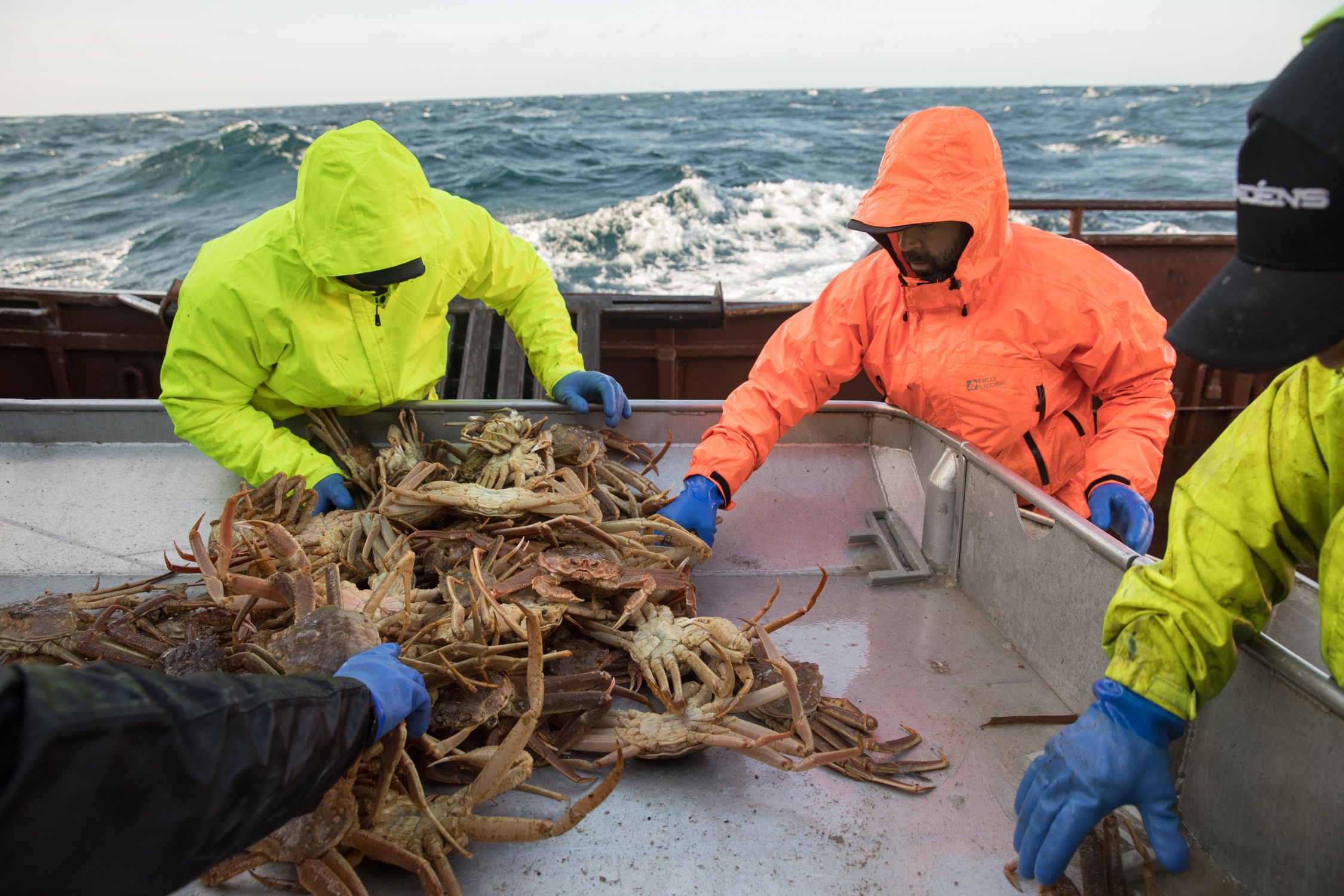The closing of the Bering Sea snow and red king crab fisheries poses a $1 billion economic hit and continued danger of future fishery collapses from climate change in the North Pacific, the Alaska Bering Sea Crabbers say.
“Across the country, fisheries are racing the clock to adjust to changing climate and growing uncertainty,” according to a statement issued by the association Wednesday. “In the North Pacific, ABSC is proposing a 3-prong approach for crab and disasters like it: provide rapid financial relief, develop adaptive and responsive management, and bolster continued science and research. Alaska’s snow crab fishery is the perfect test case for innovating these crisis responses.”
“This is a defining moment in U.S. fisheries management,” said Jamie Goen, executive director of the Alaska Bering Sea Crabbers. “We must focus on what we can control: helping hard-working fishing families and coastal communities and using the information we have to make better, more balanced, holistic management decisions.”
“We have a plan to manage fisheries in the Bering Sea to keep all fisheries sustainable and resilient – even in the face of climate change. Executing this plan will take true leaders who are willing to evolve our rigid management, science, and governance systems and it will take collaboration among all fishing sectors, scientists, and agencies. It won’t be easy, but it is absolutely possible.”
The crabbers called for effective financial relief that “must put money into the pockets of fishermen, and affected fishing communities, within six months,” taking an approach of similar federal responses to crop failures, hurricanes and floods.
“Without this type of program for fishermen, we’ll lose fishing families from the industry,” according to the association. “Without them, U.S. fisheries are driven towards foreign or corporate owners who can weather an economic downturn but are far less tied to the success and well-being of our coastal communities.”
The crabbers association and 10 other groups representing Alaska communities, fishery harvester and processors for an expedited fishery disaster request via Alaska Gov. Mike Dunleavy to the U.S. Department of Commerce last week.
“Even expedited, this existing process typically takes years to get financial relief to fishermen,” the crabbers noted.
The Oct. 10 announcement of the crab season closures came days after Bering Sea crabbers pushed the North Pacific Fishery Management Council to take more steps for protecting crab habitat and reducing bycatch in Bering Sea trawl fisheries.
“ABSC has recommended actions to help better manage and conserve Alaska’s crab stocks to the North Pacific Fishery Management Council for years – recommendations like reducing bycatch limits to create incentives to avoid crab, protecting vulnerable molting and mating crab, protecting habitat, and creating dynamic closed areas – all while keeping other fisheries on the water,” the statement says.
“Last year, ABSC proposed a one-year emergency measure to create immediate protections for Bristol Bay red king crab and habitat. These proposals are consistently denied even in the face of growing evidence that these actions would have helped crab stocks. But we won’t give up fighting to rebuild these crab stocks that our livelihoods depend on. ABSC once again has an emergency request pending with the Secretary of Commerce to protect red king crab and their habitat.”
Crab captain Mark Casto of the F/V Pinnacle said a fishery closure should trigger lower bycatch caps.
“This is the first time, in the 30-plus years that I have been captain/owner, that there will be no snow crab fishery. My seven-man crew, all who have worked with me for up to 23 years, will have to figure out something else to do,” Casto says in the association statement.
“As a second-generation fishermen, I feel its time all Bering Sea fisheries come together and figure out how to work together on the issues we have control over. Issues such as bycatch in all fisheries, not fishing in areas during times when crab are molting and mating, and targeting the predatory fish that feed on the crab.
"If one fishery is closed, we need to lower the bycatch caps on all other fisheries. It’s time to start working together, we are supposed to be the leaders in sustainable fisheries, it’s time to act like it.”
Crabbers shut out of the commercial fishery “are ready to use their vessels as research platforms to better understand crab movement, habitat, and patterns of distribution for both juveniles and females,” the association says. “With fisheries closed, captains and their crews are eager to get moving on meaningful research this season.”







